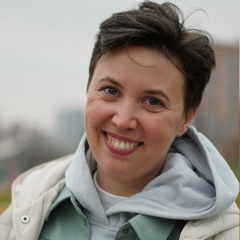Я не согласен с обвинениями в этой статье, предъявляемыми именно «МП». В данном случае «МП» как таковая тут ни при чём, и не в её адрес должна быть направлена критика. Речь идёт о системной и глубинной проблеме Православия как такового, о которой я уже лет десять как пишу (за что и получал по шее), и которая в статье обозначена совершенно точно (не обращайте внимания на «МП»):
«Важно, что по факту сейчас в МП нет никакой реальной и подлинной духовной практики, которую могли бы вам предложить в качестве средства духовного и личностного роста. Почти всё, что может предложить современная МП, это клишированный набор религиозных услуг, за которым, как за забором, скрывается пустота духовная и интеллектуальная».
Осознающие это проблему – это и есть те «расцерковляющиеся», о которых я всё время говорю.
Это я вот к чему: я сейчас перевожу трактат Терстегена «О различном понимании того, что́ есть благочестие и преуспеяние в нём». И здесь даётся блестящее описание внутреннего процесса «расцерковления». Но если в современной православной жизни человек этого пугается, впадает в самоедство и уныние и, не получив пастырской помощи, чаще всего уходит из Церкви, то Терстеген, наоборот, высоко оценивает такое состояние, считая его первым шагом к переходу к истинному христианству. Собственно, это и есть процесс «нового рождения свыше»; и его этапы Терстеген раскрывает с большой подробностью. Этого вовсе нет в нашей православной педагогике – и здесь коренится ответ на часто задаваемый вопрос: «а зачем нам (православным) все эти протестанты, когда у нас есть наши святые отцы?» У наших святых отцов такого не прочтёшь.
Итак, вот этот фрагмент:
ГЕРХАРД ТЕРСТЕГЕН. «Путь истины», VI трактат, § 13.
«Переломный момент и переход человека от внешнего благочестия к существенному и внутреннему христианству совершается примерно следующим образом. Все внешние и внутренние благочестивые занятия, вся деятельность души, на которых доселе зиждилось (часто неосознанно) её христианство, становятся для неё тягостными и бессмысленными. У одних это происходит быстро, у других – постепенно. Чтение духовных книг, душеполезные размышления и беседы, устное молитвословие и тому подобное перестаёт питать душу и не может более продолжаться – отчасти из-за того, что прежде столь активный рассудок постепенно обессиливается и делается неспособным рассматривать и понимать духовные вещи так, как это у него получалось раньше; отчасти потому, что понятия и представления, которыми человек прежде наполнил себя, исчерпываются для него, а ничего другого он не может ни принять, ни удержать в себе. Всё, чем душа занимала себя при своём внешнем и внутреннем делании, начинает крайне её отягощать, и больше не производит на сердце и волю такого действия, какое было раньше. Вместо прежнего удовлетворения, сладости и отрады все дела благочестия становятся для души сухими, пустыми, бессильными, или даже и вовсе безрадостными и отвратительными.
При всём этом душа – или сразу, или со временем – начинает чувствовать в себе некое более чем обыкновенное стремление как к внешней тишине и уединению, так особенно к тишине внутренней, приводящей все её силы в неактивное и приимательное состояние . Это состояние характеризуется простотой, внутренней нерасположенностью ко всему сотворённому и забвением оного, сокровенным, тонким, исполненным любви тяготением к Богу и детской верой, сопряжённой с непрестанным вниманием к Его соприсутствию в нас. Последнее – самое важное, оно должно быть в нас и восприниматься нами непременно. Если душа всецело предаст себя этому (для падшего ума столь диковинному, но на деле поистине спасительному) внутреннему привлечению от Отца (Ин. 6, 44) и вождению Духа (Рим. 8, 14), если она будет всё своё попечение направлять на то, чтобы давать в себе место этому действию Божию, – то чрез такую тишину и упование (Ис. 30, 15) ей придёт помощь от Бога. Тогда душа будет отвыкать от всех своих прежних рассеянностей и рассосредоточенностей и от действований по указаниям падшего рассудка, дабы в смиренном безмолвии внимать внутри себя сокровенному воспитани
«Важно, что по факту сейчас в МП нет никакой реальной и подлинной духовной практики, которую могли бы вам предложить в качестве средства духовного и личностного роста. Почти всё, что может предложить современная МП, это клишированный набор религиозных услуг, за которым, как за забором, скрывается пустота духовная и интеллектуальная».
Осознающие это проблему – это и есть те «расцерковляющиеся», о которых я всё время говорю.
Это я вот к чему: я сейчас перевожу трактат Терстегена «О различном понимании того, что́ есть благочестие и преуспеяние в нём». И здесь даётся блестящее описание внутреннего процесса «расцерковления». Но если в современной православной жизни человек этого пугается, впадает в самоедство и уныние и, не получив пастырской помощи, чаще всего уходит из Церкви, то Терстеген, наоборот, высоко оценивает такое состояние, считая его первым шагом к переходу к истинному христианству. Собственно, это и есть процесс «нового рождения свыше»; и его этапы Терстеген раскрывает с большой подробностью. Этого вовсе нет в нашей православной педагогике – и здесь коренится ответ на часто задаваемый вопрос: «а зачем нам (православным) все эти протестанты, когда у нас есть наши святые отцы?» У наших святых отцов такого не прочтёшь.
Итак, вот этот фрагмент:
ГЕРХАРД ТЕРСТЕГЕН. «Путь истины», VI трактат, § 13.
«Переломный момент и переход человека от внешнего благочестия к существенному и внутреннему христианству совершается примерно следующим образом. Все внешние и внутренние благочестивые занятия, вся деятельность души, на которых доселе зиждилось (часто неосознанно) её христианство, становятся для неё тягостными и бессмысленными. У одних это происходит быстро, у других – постепенно. Чтение духовных книг, душеполезные размышления и беседы, устное молитвословие и тому подобное перестаёт питать душу и не может более продолжаться – отчасти из-за того, что прежде столь активный рассудок постепенно обессиливается и делается неспособным рассматривать и понимать духовные вещи так, как это у него получалось раньше; отчасти потому, что понятия и представления, которыми человек прежде наполнил себя, исчерпываются для него, а ничего другого он не может ни принять, ни удержать в себе. Всё, чем душа занимала себя при своём внешнем и внутреннем делании, начинает крайне её отягощать, и больше не производит на сердце и волю такого действия, какое было раньше. Вместо прежнего удовлетворения, сладости и отрады все дела благочестия становятся для души сухими, пустыми, бессильными, или даже и вовсе безрадостными и отвратительными.
При всём этом душа – или сразу, или со временем – начинает чувствовать в себе некое более чем обыкновенное стремление как к внешней тишине и уединению, так особенно к тишине внутренней, приводящей все её силы в неактивное и приимательное состояние . Это состояние характеризуется простотой, внутренней нерасположенностью ко всему сотворённому и забвением оного, сокровенным, тонким, исполненным любви тяготением к Богу и детской верой, сопряжённой с непрестанным вниманием к Его соприсутствию в нас. Последнее – самое важное, оно должно быть в нас и восприниматься нами непременно. Если душа всецело предаст себя этому (для падшего ума столь диковинному, но на деле поистине спасительному) внутреннему привлечению от Отца (Ин. 6, 44) и вождению Духа (Рим. 8, 14), если она будет всё своё попечение направлять на то, чтобы давать в себе место этому действию Божию, – то чрез такую тишину и упование (Ис. 30, 15) ей придёт помощь от Бога. Тогда душа будет отвыкать от всех своих прежних рассеянностей и рассосредоточенностей и от действований по указаниям падшего рассудка, дабы в смиренном безмолвии внимать внутри себя сокровенному воспитани
I do not agree with the accusations made in this article by MP. In this case, “MP” as such has nothing to do with it, and criticism should not be directed at it. We are talking about the systemic and underlying problem of Orthodoxy as such, about which I have been writing for about ten years (for which I got a neck), and which is indicated in the article absolutely precisely (do not pay attention to the “MP”):
“It is important that in fact now in MP there is no real and genuine spiritual practice that could be offered to you as a means of spiritual and personal growth. Almost all that a modern MP can offer is a cliched set of religious services, behind which, like behind a fence, is a spiritual and intellectual void. ”
Aware of this problem - these are the “chatterboxes” that I’m talking about all the time.
That’s what I’m talking about: I’m now translating Terstegen’s treatise "On the Different Understanding of What is Piety and Success in It." And here a brilliant description of the internal process of "churching" is given. But if in modern Orthodox life a person is frightened of this, falls into self-reliance and despondency and, not having received pastoral help, most often leaves the Church, Terstegen, on the contrary, highly appreciates this condition, considering it his first step towards the transition to true Christianity. Actually, this is the process of “new birth from above”; and its stages Terstegen reveals in great detail. This is not at all in our Orthodox pedagogy, and the answer to the frequently asked question is rooted here: “why do we (Orthodox) need all these Protestants when we have our holy fathers?” Our holy fathers cannot read this.
So here is this snippet:
GERHARD TERSTEGEN. The Way of Truth, VI treatise, § 13.
“The turning point and the transition of man from external piety to substantial and inner Christianity takes place approximately as follows. All external and internal pious activities, all the activities of the soul on which her Christianity has hitherto been based (often unconsciously), become for her painful and meaningless. In some, this happens quickly, in others - gradually. Reading spiritual books, soulful thoughts and conversations, oral prayer, and the like, ceases to nourish the soul and can no longer continue - partly due to the fact that previously such an active mind gradually becomes weak and incapable of considering and understanding spiritual things like this it turned out earlier; partly because the concepts and ideas with which a person had previously filled himself are exhausted for him, and he can neither accept nor retain anything else. Everything that the soul occupied itself with its external and internal doing, begins to burden it extremely, and no longer produces such an action on the heart and will as it was before. Instead of the former satisfaction, sweetness and joy, all acts of piety become dry, empty, powerless, or even completely joyless and disgusting for the soul.
With all this, the soul - either immediately or over time - begins to feel in itself a more than ordinary desire for external silence and solitude, especially for internal silence, which brings all its forces to an inactive and receptive state. This state is characterized by simplicity, inner disinclination to everything created and oblivion thereof, innermost, subtle, full of love gravitation towards God and children's faith, coupled with constant attention to His presence in us. The latter is the most important, it must be in us and perceived by us without fail. If the soul completely betrays itself to this (for the fallen mind so outlandish, but in fact truly saving) inner attraction from the Father (John 6, 44) and the driving of the Spirit (Rom. 8, 14), if it will direct all its care to that in order to give a place in itself to this action of God, then through such silence and hope (Isa. 30, 15) help from God will come to her. Then the soul will wean from all its former absent-mindedness and lack of focus and from acting according to the instructions of a fallen reason, so that in a humble silence to heed the inner education
“It is important that in fact now in MP there is no real and genuine spiritual practice that could be offered to you as a means of spiritual and personal growth. Almost all that a modern MP can offer is a cliched set of religious services, behind which, like behind a fence, is a spiritual and intellectual void. ”
Aware of this problem - these are the “chatterboxes” that I’m talking about all the time.
That’s what I’m talking about: I’m now translating Terstegen’s treatise "On the Different Understanding of What is Piety and Success in It." And here a brilliant description of the internal process of "churching" is given. But if in modern Orthodox life a person is frightened of this, falls into self-reliance and despondency and, not having received pastoral help, most often leaves the Church, Terstegen, on the contrary, highly appreciates this condition, considering it his first step towards the transition to true Christianity. Actually, this is the process of “new birth from above”; and its stages Terstegen reveals in great detail. This is not at all in our Orthodox pedagogy, and the answer to the frequently asked question is rooted here: “why do we (Orthodox) need all these Protestants when we have our holy fathers?” Our holy fathers cannot read this.
So here is this snippet:
GERHARD TERSTEGEN. The Way of Truth, VI treatise, § 13.
“The turning point and the transition of man from external piety to substantial and inner Christianity takes place approximately as follows. All external and internal pious activities, all the activities of the soul on which her Christianity has hitherto been based (often unconsciously), become for her painful and meaningless. In some, this happens quickly, in others - gradually. Reading spiritual books, soulful thoughts and conversations, oral prayer, and the like, ceases to nourish the soul and can no longer continue - partly due to the fact that previously such an active mind gradually becomes weak and incapable of considering and understanding spiritual things like this it turned out earlier; partly because the concepts and ideas with which a person had previously filled himself are exhausted for him, and he can neither accept nor retain anything else. Everything that the soul occupied itself with its external and internal doing, begins to burden it extremely, and no longer produces such an action on the heart and will as it was before. Instead of the former satisfaction, sweetness and joy, all acts of piety become dry, empty, powerless, or even completely joyless and disgusting for the soul.
With all this, the soul - either immediately or over time - begins to feel in itself a more than ordinary desire for external silence and solitude, especially for internal silence, which brings all its forces to an inactive and receptive state. This state is characterized by simplicity, inner disinclination to everything created and oblivion thereof, innermost, subtle, full of love gravitation towards God and children's faith, coupled with constant attention to His presence in us. The latter is the most important, it must be in us and perceived by us without fail. If the soul completely betrays itself to this (for the fallen mind so outlandish, but in fact truly saving) inner attraction from the Father (John 6, 44) and the driving of the Spirit (Rom. 8, 14), if it will direct all its care to that in order to give a place in itself to this action of God, then through such silence and hope (Isa. 30, 15) help from God will come to her. Then the soul will wean from all its former absent-mindedness and lack of focus and from acting according to the instructions of a fallen reason, so that in a humble silence to heed the inner education
У записи 2 лайков,
0 репостов,
166 просмотров.
0 репостов,
166 просмотров.
Эту запись оставил(а) на своей стене Сергей Рогожкин























